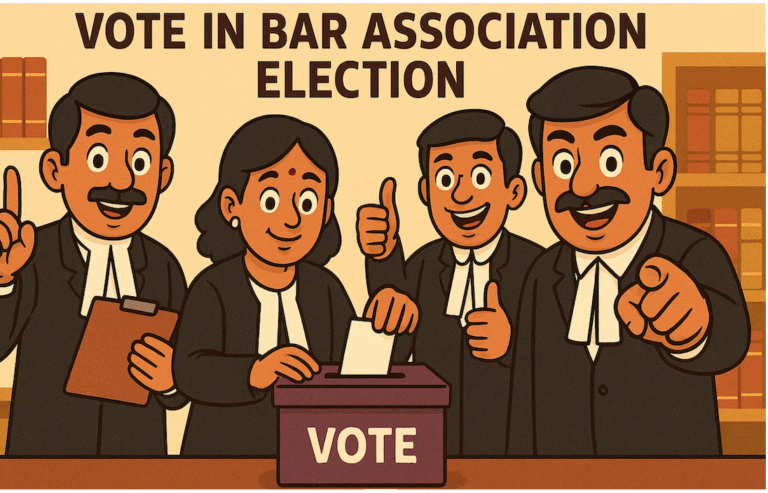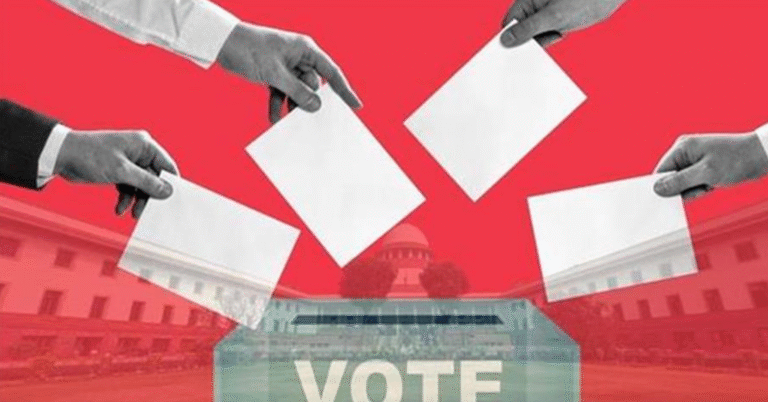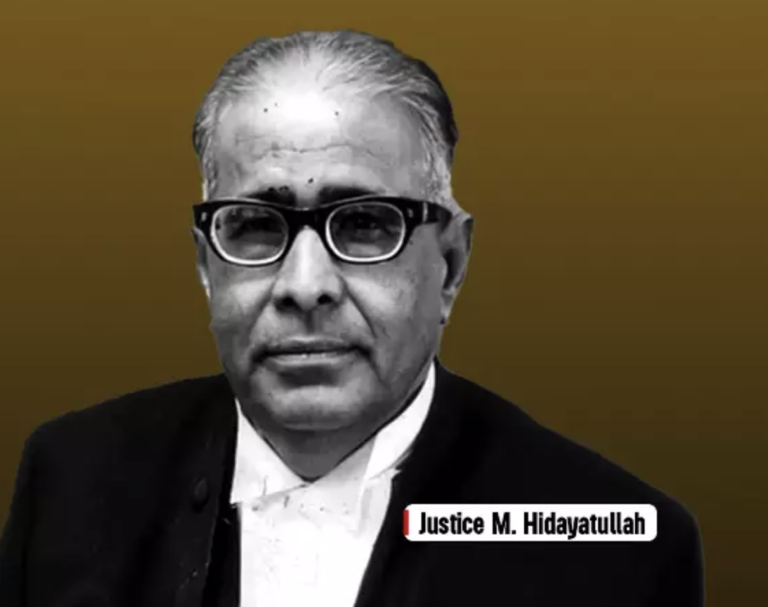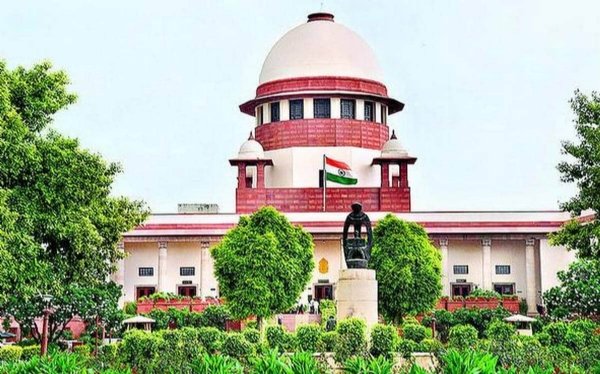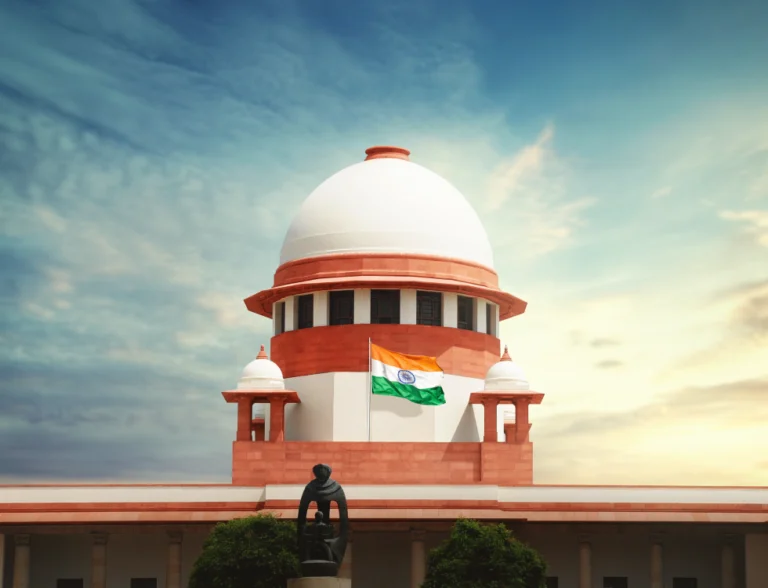Bombay High Court Chief Justice Chandrashekhar Overrules Supreme Court Full Bench Judgment in Bal Thackrey’s Case (2005) 1 SCC 254; Refuses to Follow Binding Directions and Guidelines

The Supreme Court Lawyers’ Association has written to the Hon’ble President of India seeking immediate initiation of prosecution and disciplinary action against Chief Justice Chandrashekhar and other Judges concerned, including the withdrawal of their judicial work.
It is submitted that under Sections 2(b), 12 and 16 of the Contempt of Courts Act, 1971, a High Court Judge who passes an order in direct contravention of binding guidelines laid down by the Supreme Court is himself guilty of contempt of court. Importantly, the law recognises that any citizen has the locus to file a contempt petition against such Judges.
This principle has been affirmed in authoritative rulings, including Re: C.S. Karnan, (2017) 7 SCC 1; Rabindra Nath Singh v. Rajesh Ranjan, (2010) 6 SCC 417; and M/s. Spencer and Co. Ltd. v. M/s. Vishwadarshan Distributors Pvt. Ltd., (1995) 1 SCC 259.
SCLA Chairman, Adv. Ishwarlal Agarwal, expressed strong displeasure, stating that it is deeply unfortunate that the Chief Justice of the Bombay High Court appears unaware of the most basic principle of judicial discipline—namely, that the judgment of a larger Bench is binding, while a contrary view of a smaller Bench has no authority in law.
In a detailed representation, Adv. Ishwarlal Agarwal, Chairman of the Supreme Court Lawyers’ Association (SCLA), has sought immediate action against the guilty Judges, with particular emphasis on Chief Justice Chandrashekhar, for willfully disregarding binding larger Bench precedents of the Hon’ble Supreme Court.
Mumbai | 17.09.2025: In an unprecedented development, a Five-Judge Bench of the Bombay High Court headed by Chief Justice Chandrashekhar has passed an order in Suo Motu Contempt Petition No. 01 of 2025 dismissing an application filed by Adv. Nilesh Ojha seeking addition of Justice Revathi Mohite Dere as party-respondent. Shockingly, while doing so, the Bench not only ignored but effectively overruled the binding ratio of a Full Bench of the Supreme Court in Bal Thackrey v. Harish Pimpalkhute, (2005) 1 SCC 254, and other larger-bench precedents.
The Hon’ble Supreme Court in para 39 of P.N. Duda v. P. Shiv Shanker, (1988) 3 SCC 167, and again in para 23 of Biman Basu v. Kallol Guha Thakurta, (2010) 8 SCC 673, has specifically clarified that the ratio laid down in C.K. Daphtary v. O.P. Gupta, (1971) 1 SCC 626, stands statutorily overruled.
The Full Bench of the Hon’ble Supreme Court in Bal Thackrey v. Harish Pimpalkhute, (2005) 1 SCC 254 comprehensively considered all earlier larger Bench judgments and expressly and unequivocally overruled the ratio laid down in Pritam Pal v. High Court of M.P., 1993 Supp (1) SCC 529. The Court further directed all High Courts, including the Bombay High Court, to frame appropriate rules and practice directions in conformity with the binding precedent of P.N. Duda v. P. Shiv Shanker, (1988) 3 SCC 167.
in Suresh Bhoyer v. Shri Manohar Bhagat, 2012 (5) ALL MR 230, it was categorically observed:
“The judgment in the matter of Pritam Pal’s case dated 19.2.1992 was rendered by two Honourable Lordships of the Supreme Court, while the judgment in the matter of Pallav Sheth was by three Honourable Judges of the Supreme Court. Consequently, no astrologer is required to comment that the later judgment rendered by the Supreme Court by the three Honourable Judges on 10.8.2001 will only hold the field.”
Similarly, in Director, Indira Gandhi Rashtriya Udan Academy v. Sheo Narayan Chaudhary, 2020 (139) ALR 521, the Court reiterated:
“So far as the judgment in the case of Pritam Pal (supra), as relied on by the learned counsel by the applicant is concerned, suffice to state that the said judgment was delivered by two Judges while the judgments in Pallav Sheth and Dr. L.P. Misra (supra) were both delivered by three Judges and were also of the subsequent dates.”
Thus, the reliance placed by the Bombay High Court on Re: Vijay Kurle while ignoring Bal Thackrey, Pallav Sheth, and Dr. L.P. Misra is not only judicially untenable but also a direct affront to the doctrine of judicial discipline.
A smaller two-Judge Bench in Re: Vijay Kurle, 2020 SCC OnLine SC 407, completely failed to notice the binding larger Bench decisions in Bal Thackrey v. Harish Pimpalkhute, (2005) 1 SCC 254, Dr. L.P. Misra v. State of U.P., (1998) 7 SCC 379, and Pallav Sheth v. Custodian, (2001) 7 SCC 549. Instead, it erroneously held that P.N. Duda v. P. Shiv Shanker, (1988) 3 SCC 167, was not binding and that Pritam Pal v. High Court of M.P., 1993 Supp (1) SCC 529, continued to hold the field.
Senior Advocate Shri Asim Pandya, a leading authority on constitutional and contempt law and the author of a standard treatise on the Law of Contempt, in his article dated 16.09.2020 published in LiveLaw titled “Arrogation of Unlimited Contempt Power by the Supreme Court – A Hornets’ Nest Stirred Up Again”, has exhaustively demonstrated the illegality in Re: Vijay Kurle (2020) and explained why the said decision cannot be treated as binding law.
In law, such decisions are termed per incuriam and carry no precedential value (Sandeep Kumar Bafna v. State of Maharashtra, (2014) 16 SCC 623). Court in Official Liquidator v. Dayanand, (2008) 10 SCC 1, and a three-Judge Bench in C.N. Rudramurthy v. K. Barkathulla Khan, (1998) 8 SCC 275, have made it abundantly clear that once a larger Bench has taken a particular view, any contrary opinion by a smaller Bench stands impliedly overruled.
Despite this settled position, the Five-Judge Bench of the Bombay High Court, headed by Chief Justice Chandrashekhar, gravely erred in holding that the two-Judge Bench decision in Re: Vijay Kurle, (2021) 13 SCC 616, was binding, while completely ignoring the binding three-Judge Bench ruling in Bal Thackrey. On this erroneous basis, the Bench dismissed the application filed by Adv. Nilesh Ojha seeking impleadment of Justice Revathi Mohite Dere as a party-respondent in Suo Motu Contempt Petition No. 01 of 2025, and even went to the extent of issuing a show-cause notice against him.
It is noteworthy that Re: Vijay Kurle (2021) is itself under challenge before a larger Bench of the Supreme Court, along with the case of Prashant Bhushan, In re, (2021) 1 SCC 745, in which notices have already been issued to the Union of India.
Senior Advocate Shri Asim Pandya, a leading constitutional and contempt law expert and author of a standard treatise on the Law of Contempt, in his LiveLaw article dated 16.09.2020 titled “Arrogation of Unlimited Contempt Power by the Supreme Court – A Hornets’ Nest Stirred Up Again”, has exhaustively explained the illegality in Re: Vijay Kurle (2020) and Prashant Bhushan, In re (2021), particularly the reliance placed on the overruled judgment in Pritam Pal to hold that the Contempt of Courts Act, 1971 is not binding on the Supreme Court.

